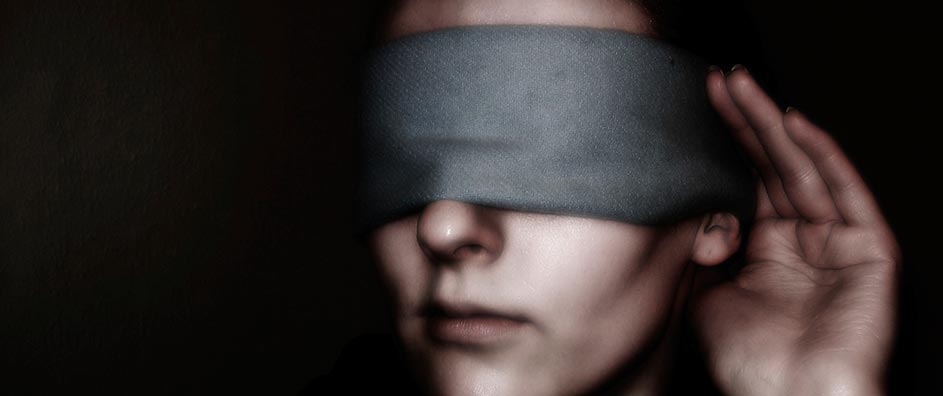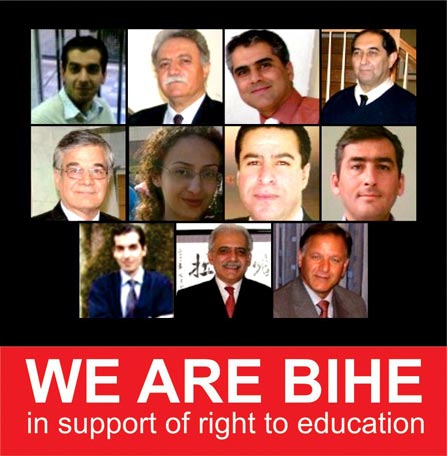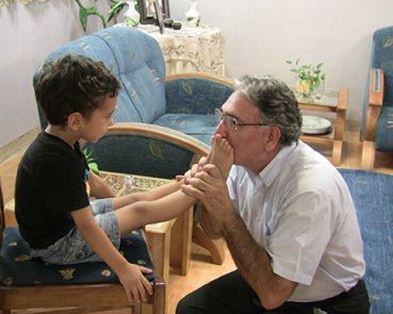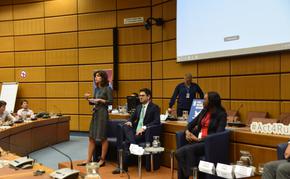The views expressed in our content reflect individual perspectives and do not represent the authoritative views of the Baha'i Faith.
 Anyone who has seen Schindler’s List will remember the scene when the film’s protagonist is temporarily detained for kissing a female Jewish work camp prisoner in a rare celebratory moment. This was a violation of the Nazi regime’s racial laws, based on theories asserting that Jewish “blood” or genes were harmful to society and, in a few instances, that Jews were even carriers of dangerous contamination.
Anyone who has seen Schindler’s List will remember the scene when the film’s protagonist is temporarily detained for kissing a female Jewish work camp prisoner in a rare celebratory moment. This was a violation of the Nazi regime’s racial laws, based on theories asserting that Jewish “blood” or genes were harmful to society and, in a few instances, that Jews were even carriers of dangerous contamination.
Such pernicious theories are, of course, rejected by sound science and generally regarded today as a particularly extreme result of centuries of anti-Semitism in Europe. While the Nazi concepts targeted one’s race or ethnicity and stand alone in their brutal results, there are surprising similarities with concepts used in Iran today that instead target one’s beliefs.
Recently, a well-known Iranian journalist and former staunch supporter of the regime, Mohammad Nourizad, visited the home of a Baha’i family in Iran to express regret for the family’s plight. During the visit, he accepted a cup of tea from a 4-year-old Baha’i child and had himself photographed kissing the child’s feet.
 The child’s parents, Kamran Rahimian and his wife, Faran Hessami, are imprisoned for having served as psychology instructors at the Baha’i Institute for Higher Education (BIHE). BIHE was formed by the Baha’i community, the nation’s largest non-Muslim religious minority, in 1987 in response to the Iranian regime’s policy of excluding Baha’i youth from higher education. Nourizad’s words, together with the photo of him kissing the child’s feet, generated considerable discussion in Iran as the photo and story were spread via social media. Western news media picked up the story and saw it as an act of contrition on the part of Nourizad.
The child’s parents, Kamran Rahimian and his wife, Faran Hessami, are imprisoned for having served as psychology instructors at the Baha’i Institute for Higher Education (BIHE). BIHE was formed by the Baha’i community, the nation’s largest non-Muslim religious minority, in 1987 in response to the Iranian regime’s policy of excluding Baha’i youth from higher education. Nourizad’s words, together with the photo of him kissing the child’s feet, generated considerable discussion in Iran as the photo and story were spread via social media. Western news media picked up the story and saw it as an act of contrition on the part of Nourizad.
However, it is important to understand that, in the cultural context, it was much more than that.
I remember stories from the 1980s of Baha’i prisoners in Iran being led blindfolded between their cells and interrogation rooms. Sometimes, the prison guard, in order to avoid contact with the Baha’i, would hold one end of a pencil and tell the prisoner to hold the other end, so that he could guide the prisoner without having to touch him or her.
In an article published this year by a noted Iranian lawyer, Ms. Mehrangiz Kar, she recalled representing a Baha’i client who had provided her with documents. Kar was pleased that the judge presiding over the trial was young, formally trained in the law, well-groomed, and therefore, she surmised, likely to have less of a bias against Baha’is.
As the judge extended his hand to receive the documents, he suddenly stopped, asked whether the papers had come from the Baha’i client, withdrew his hand, reached for a tissue, and then received the documents, making sure they did not touch his skin.

Photo: Ms. Mehrangiz Kar
The concept of ritual uncleanliness is an old one embedded in several major religious traditions, including Islam and Judaism. It is still accepted by many religious Iranian Muslims today. The Iranian Government has even taken legal steps to make sure that it applies to the occupations in which Baha’is may work. In a letter dated April 9, 2007, from the Public Places Supervision Office of the Public Intelligence and Security Force in the province of Tehran, addressed to the regional commanders of police and the heads of public intelligence and security forces, instructions were issued to prevent Baha’is from engaging in a wide range of businesses including “high-earning businesses.” The letter also prohibits Baha’is from receiving permits in 25 “sensitive business categories” and trades ranging from the tourist industry to computer sales, publishing, and a wide range of food businesses. With respect to the latter, the letter provides: “In accordance with the religious canons, work permits will not be issued to the followers of the perverse Bahaist sect in business categories related to Taharat [cleanliness] (1. catering at reception halls, 2. buffets and restaurants, 3. grocery shops, 4. kebab shops, 5. cafes, 6. protein [poultry] shops and supermarkets, 7. ice cream parlors, fruit juice and soft drinks shops, 8. pastry shops, 9. coffee shops.)” (italics added)
Hence, by visiting a Baha’i home, drinking tea from cups handled by his hosts, and kissing the feet of the “unclean” child, Nourizad was doing much more than expressing repentance. He was challenging the theological underpinnings in the minds of many of Iran’s citizens, especially its clerics, that the persecution of Baha’is and their marginalization in society is justified.
Read the next article in the series: Speaking the Fobidden Word “Baha’i” in Iran









![[God] hath made woman and man to abide with each other in the closest companionship, and to be even as a single soul. They are two helpmates, two intimate friends, who should be concerned about the welfare of each other. If they live thus, they will pass through this world with perfect contentment, bliss, and peace of heart, and become the object of divine grace and favour in the Kingdom of heaven. But if they do other than this, they will live out their lives in great bitterness, longing at every moment for death, and will be shamefaced in the heavenly realm. Strive, then, to abide, heart and soul, with each other as two doves in the nest, for this is to be blessed in both worlds. – #AbdulBaha #Love #Marriage #Companionship #BahaiFaith
(Selections from the Writings of ‘Abdu’l-Bahá, paragraphs 92.1–92.3)](https://media.bahaiteachings.org/sb-instagram-feed-images/487782836_18497319871023335_4819806972653811469_n__v284x284__.jpeg)






Comments
Sign in or create an account
Continue with Googleor